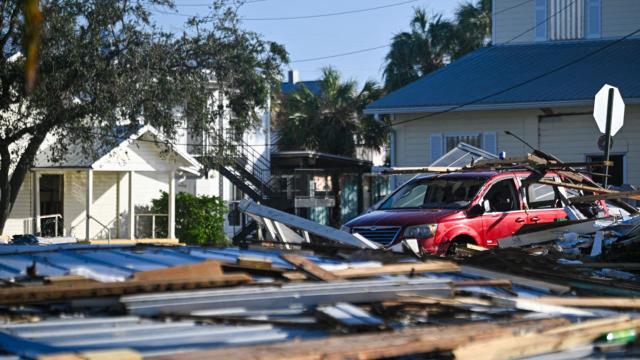Imagine you wake up after a hurricane, and your home needs repairs. Maybe the wind tore off some shingles, or maybe there’s water damage inside. It’s confusing, scary, and you might not know where to turn next. We’ve all seen the news reports, the images of flooded streets and wrecked houses, but it hits differently when it’s your home. It’s a stressful situation, but don’t worry.
This guide is here to help you figure out what to do next. We’ll walk you through practical steps, like how to find reliable contractors and where to get the help you need to get things back on track.
5 Immediate Steps to Take After a Hurricane Hits
Here are the steps you can take.
Safety First
After a hurricane, it’s natural to want to check on your home and belongings, but your safety should be your top priority. Wait for local officials to give the “all clear” before returning to your property.
Even when the storm has passed, dangers remain. Downed power lines can cause electrocution, gas leaks pose a fire hazard, and floodwaters can be contaminated and hide debris. Also, be aware of your surroundings and proceed with caution. Before entering your home, check for structural damage like cracks in the foundation, leaning walls, or a damaged roof.
If anything seems unstable, it’s best to stay away until a professional can assess the safety. Stay tuned to local news and emergency broadcasts for updates and instructions.
Document Everything
Creating a thorough record of the damage is crucial for insurance claims and any potential legal issues. Grab your phone or camera and document everything! Take photos and videos of all property damage, both inside and out. Capture the damage from multiple angles and be sure to include close-ups of specific details.
In addition, create a detailed inventory of all damaged or lost possessions. Include descriptions, estimated values, and any relevant receipts or purchase records you may have. This inventory will help you remember everything you’ve lost and support your insurance claim.
Also, keep a log of all communication with your insurance company, contractors, and any government agencies you contact. Note the date, time, and the names of individuals you speak with. This log will help you stay organized and track your progress.
Make Temporary Repairs
While waiting for insurance adjusters and contractors, take reasonable steps to prevent further damage to your property. This might involve covering broken windows with plywood, placing a tarp over a damaged roof, or shutting off the main water supply if you have leaks.
Remember to save all receipts for any materials you purchase and any emergency repairs you make. This documentation will be important for your insurance claim and potential tax deductions.
Contact Your Insurance Company
Don’t delay in reporting the damage to your insurance company. The sooner you call, the sooner they can start the claims process. Be prepared to provide them with all the documentation you’ve gathered, including photos, videos, and your inventory list.
Don’t be afraid to ask questions about the claims process, what’s covered under your policy, and what you can expect in the coming days and weeks. Understanding your policy and the process will help you navigate this challenging time.
Reach Out for Help
Many resources are available to help you recover and rebuild. Register with the Federal Emergency Management Agency (FEMA) for disaster assistance. They may be able to provide grants, loans, or temporary housing. Also, explore resources offered by your state and local government. Contact your local emergency management agency for information and assistance. They can often connect you with valuable local resources and support.
Hiring Contractors and Avoiding Scams
The aftermath of a hurricane often means dealing with repairs, big and small. While many contractors are honest and reliable, unfortunately, disaster situations also attract those looking to take advantage of vulnerable homeowners. Here’s how to find a Tampa hurricane lawyer and avoid scams.
Do Your Research
Don’t rush into hiring the first contractor who knocks on your door. Take time to gather recommendations from friends, neighbors, or online resources. Check with your local Better Business Bureau and consumer protection agencies for any complaints filed against potential contractors. Look for established local businesses with a proven track record.
Get Multiple Estimates
Contact several contractors and request detailed written estimates. Compare the scope of work, materials, and pricing. Be wary of estimates that are significantly lower than others, as this could be a red flag.
Verify Credentials
Ensure the contractor has the necessary licenses and insurance. Ask for their license number and verify it with your state or local licensing board. This protects you from liability if an accident occurs on your property.
Read the Contract Carefully
Before signing any agreement, carefully review the contract. It should clearly outline the scope of work, payment terms, start and completion dates, and warranty information. Don’t sign a contract with blank spaces or one you don’t fully understand.
Be Cautious with Payments
Avoid paying large sums of money upfront. A reasonable down payment might be required, but the majority of the payment should be tied to the completion of specific phases of the project. Always pay by check or credit card to create a record of your payments.
Trust Your Gut
If a contractor pressures you for a quick decision, uses high-pressure sales tactics, or seems too good to be true, trust your instincts and walk away.
By following these tips, you can find a qualified Tampa hurricane attorney to help you rebuild your home and avoid falling victim to scams. Remember, it’s okay to take your time, ask questions, and ensure you’re comfortable with the contractor you choose.
Wrapping Up
Recovering from a hurricane takes time, but don’t handle it alone. This guide has given you the right ways to find good contractors and get the help you need. Keep this information handy, and don’t be afraid to ask for support.
With patience and the right resources, you can rebuild your home and your life.
Good luck!



